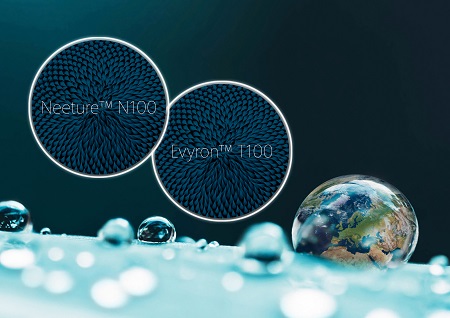Perstorp has launched new grades for two base polyols that are now available with 100% renewable, mass-balanced carbon content. When including the biogenic CO2 uptake[1] from the renewable raw materials, the products will have a negative carbon footprint[2] at the Perstorp gate. Based on a traceable mass-balance concept, Neeture™ N100 (neopentyl glycol) and Evyron™ T100 (trimethylolpropane) are designed to reduce the carbon footprint throughout the value chain and to support the sustainable sourcing of renewable and recycled raw materials.
This portfolio expansion reinforces the company's position as a leading supplier of low carbon footprint chemicals, which began in 2010 with the introduction Voxtar™, the world’s first pentaerythritol based on renewable carbon content. With the addition of these new grades, Perstorp can offer the industry’s lowest product carbon footprint for each of their base polyols (TMP, Neo, Penta). This marks an exciting milestone that enables future-proofing by phasing out virgin fossil raw materials for a wide range of applications in the market segments of resins, coatings, and synthetic lubricants.

Neeture and Evyron, along with all Perstorp's Pro-Environment products are certified according to the sustainability certification system ISCC PLUS (International Sustainability & Carbon Certification). ISCC PLUS provides companies, brand owners, and consumers the assurance that high sustainability requirements are met. The products, the mass balance, as well as the annually updated and audited product carbon footprint calculations are all ISCC PLUS certified.
Perstorp applies a mass balance with physical and chemical traceability which means that no credit transfer is applied and that all the different raw materials needed to produce the products are used. To produce Neeture N100 and Evyron T100, ISCC-certified biogas, methanol and propylene based on either bio or bio-circular origin are used. Being ISCC PLUS certified means that all sustainable raw materials are ISCC PLUS or ISCC EU certified in all parts of the value chain all the way back to the point of origin. The Pro-Environment products provide customers with an identical quality and performance as the fossil alternatives, but with the added benefit of an improved environmental profile.
Over the last years, Perstorp has significantly expanded its portfolio of Pro-Environment products to cover plasticisers, polyols, acids, alcohols, and aldehydes. All Pro-Environment products are produced based on a traceable mass-balance system, using sustainable raw materials, and carrying the ISCC PLUS certification. Pro-Environment products enable not only Perstorp's sustainable transformation, but the transformation of all companies that rely on these products. They are designed to reduce the carbon footprint throughout the value chain and to support the shift to renewable and recycled raw materials.
[1] Biogenic CO2 uptake is the CO2 captured by the plant/biomass from the atmosphere, during the photosynthesis process, while growing.
[2] Negative product carbon footprint means there is a net removal of CO2 from cradle to Perstorp gate when including the biogenic CO2 uptake. The transformation of biomass into products therefore represents a net removal of CO2, via its storage in the final product.














